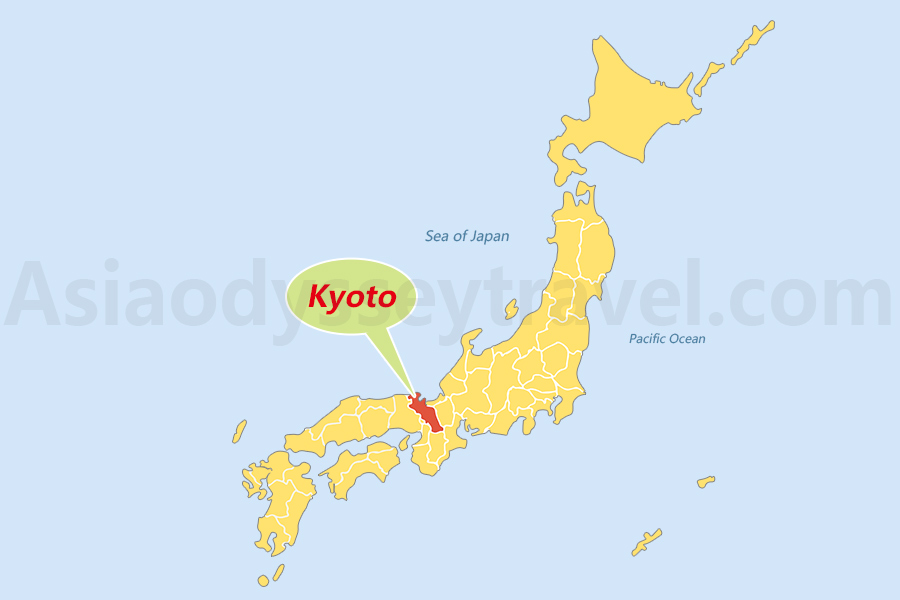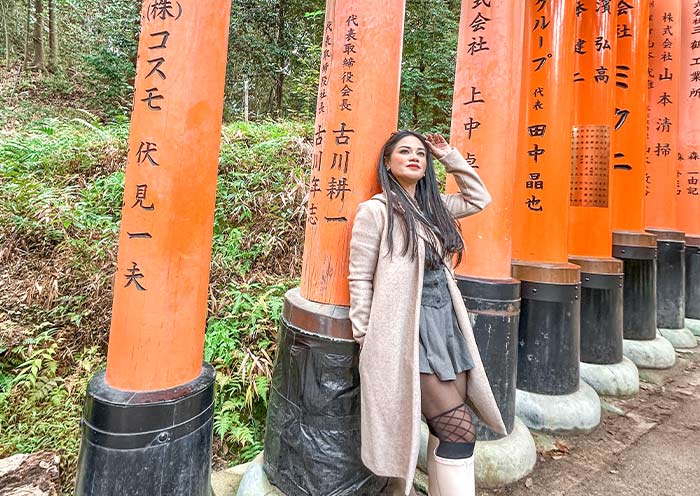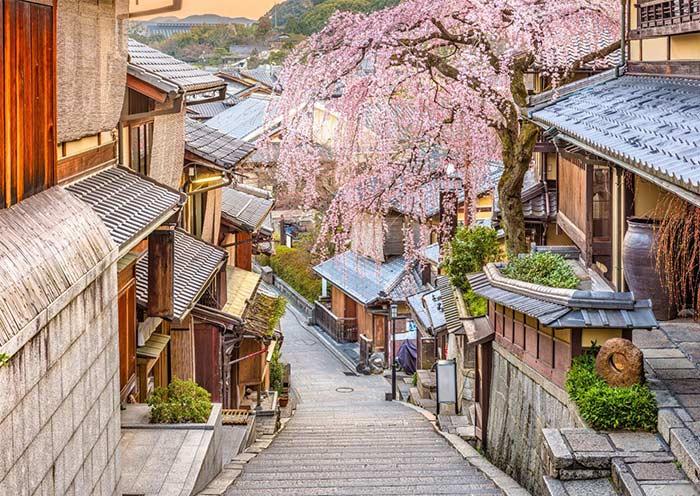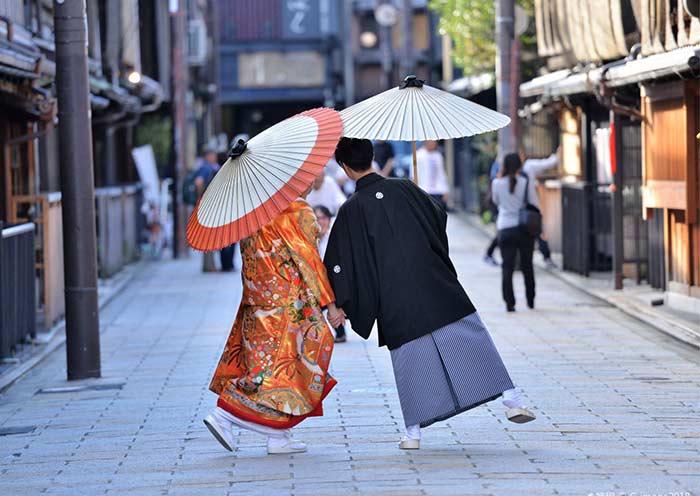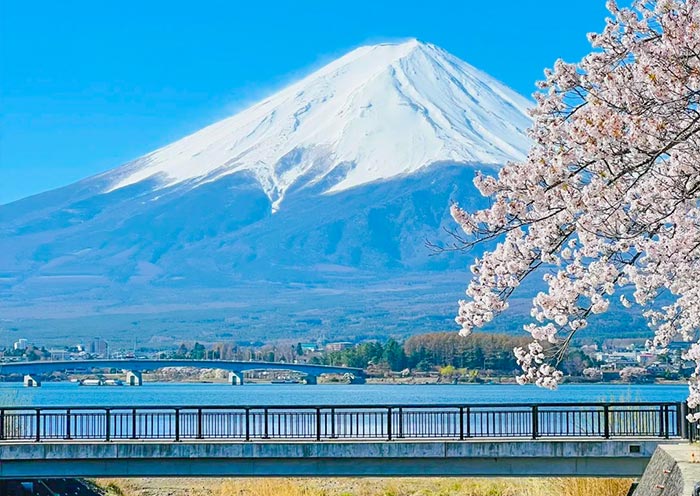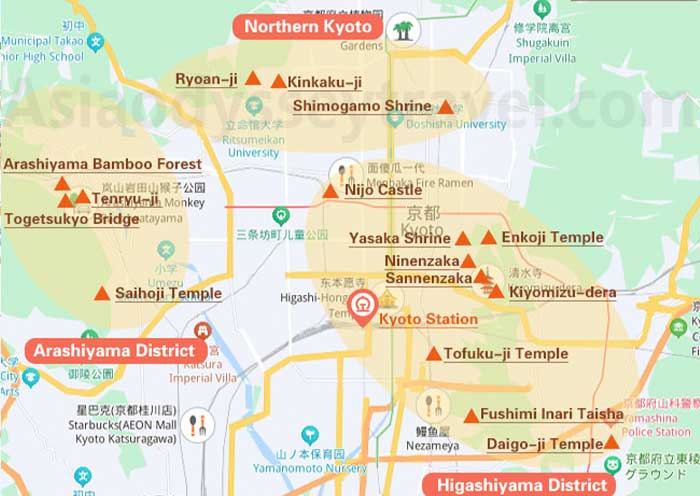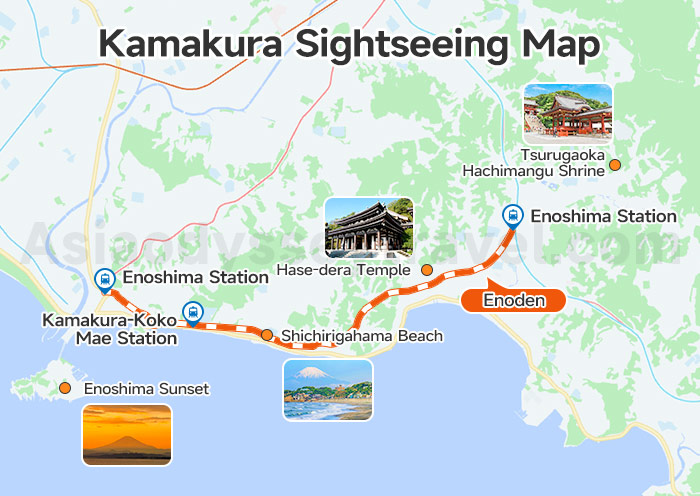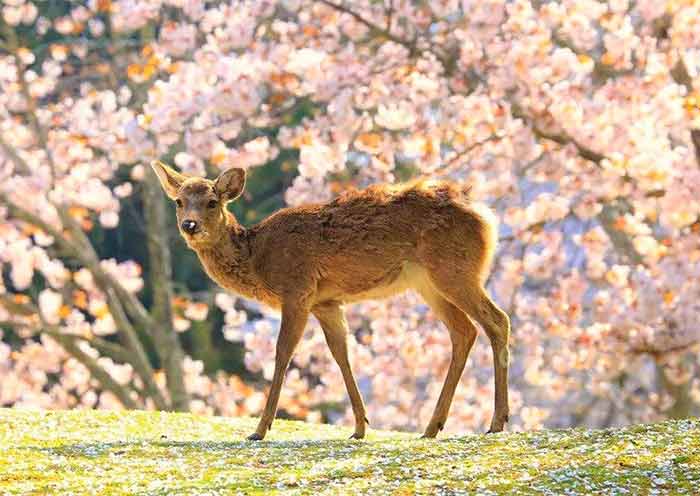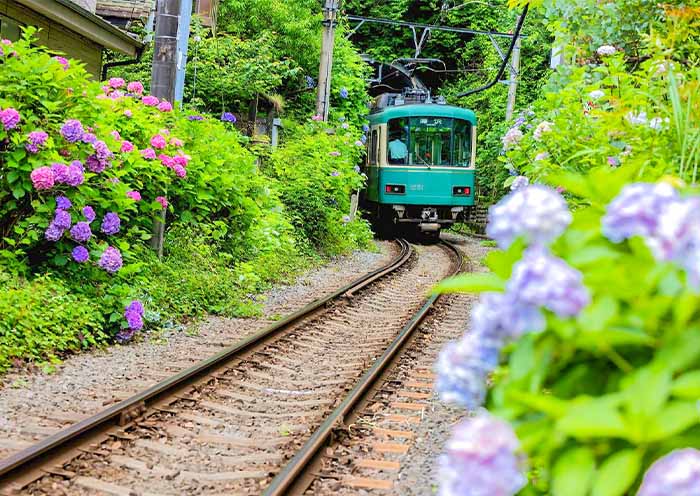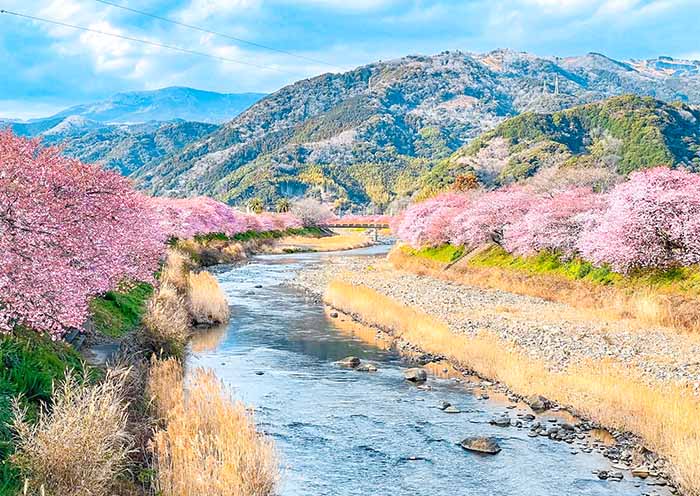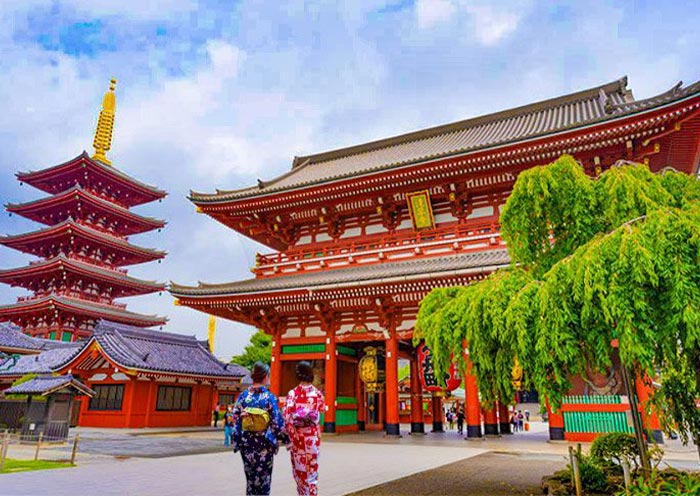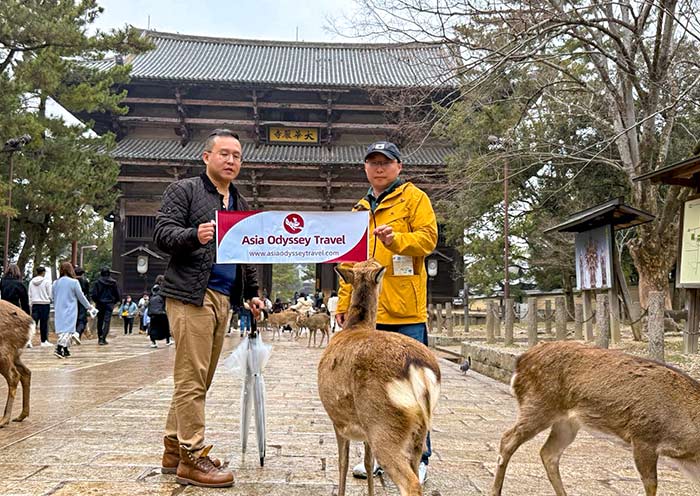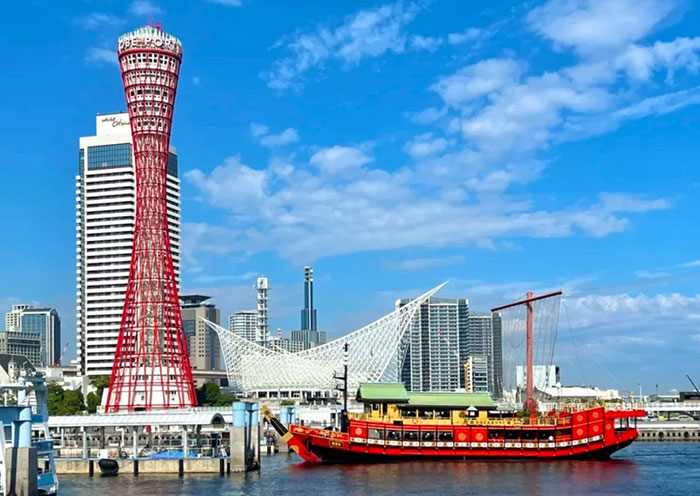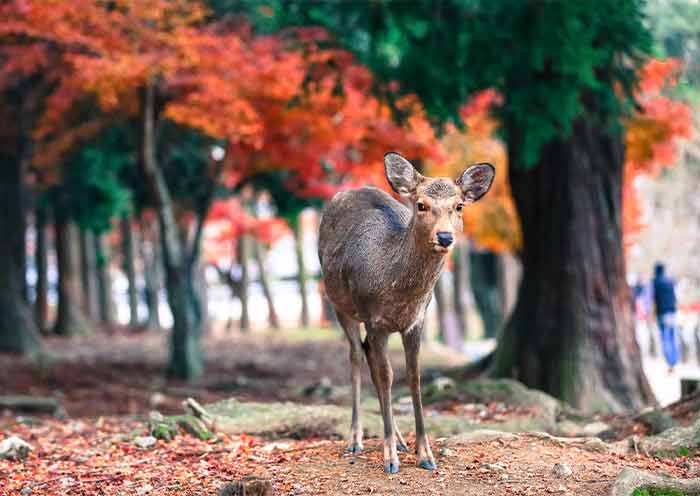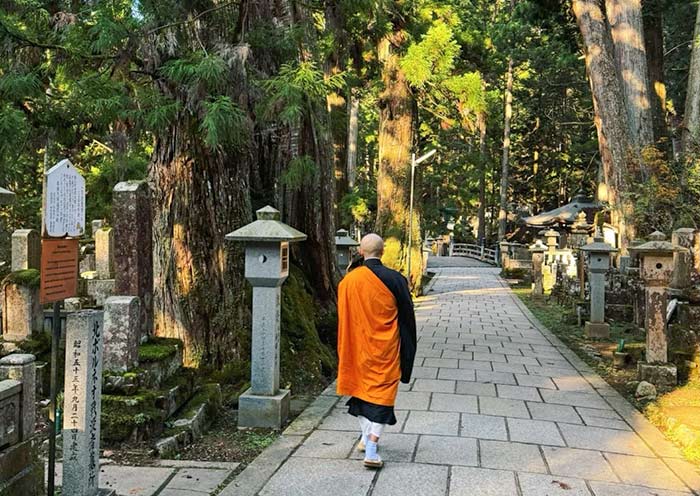When is the Best Time to Visit Kyoto? Spring & Fall Win
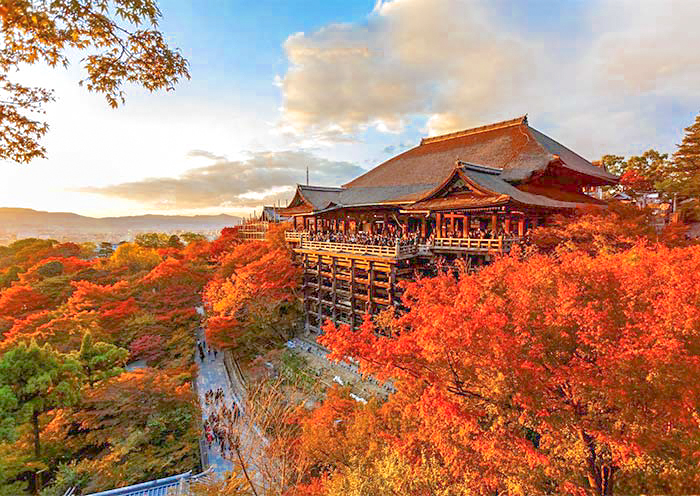
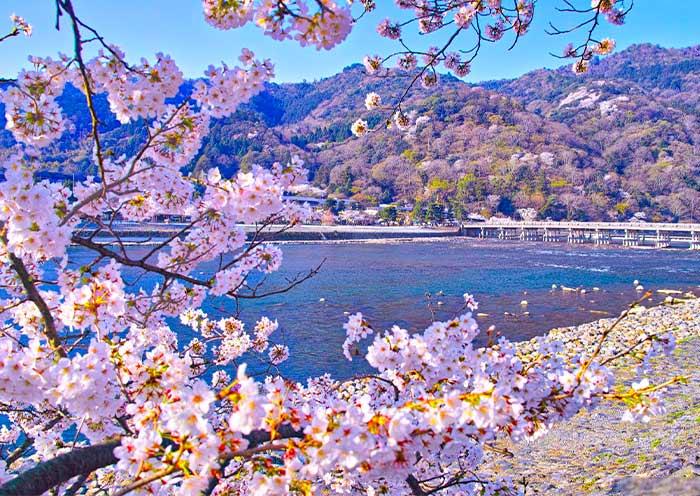
Yes, spring and autumn are indeed Kyoto's signature seasons, and for good reason. Spring brings the famous cherry blossoms, turning the city into a pink wonderland from late March to April.
Autumn, from October to December, paints the temples in fiery reds and golden yellows. The weather in both seasons is usually pleasant, making them perfect for all-day exploration of temples and gardens.
Kyoto Cherry Blossoms: 2026 Dates, 11 Best Spots & Festivals
Kyoto Autumn Foliage: Visiting Time, Spots & Itinerary (2026 Guide)
Kyoto Weather Overview: For Different Seasons
| Season | Best For | Crowds | Weather | Hotel Cost |
|---|---|---|---|---|
| Spring (Mar-May) | Cherry blossoms, perfect weather | Very High | 6-24°C | $$$ |
| Summer (Jun-Aug) | Festivals, temple mornings | Moderate | 20-34°C | $$ |
| Fall (Sep-Nov) | Autumn colors, photography | Very High | 15-30°C | $$$ |
| Winter (Dec-Feb) | Peaceful temples, value | Low | 0-12°C | $ |
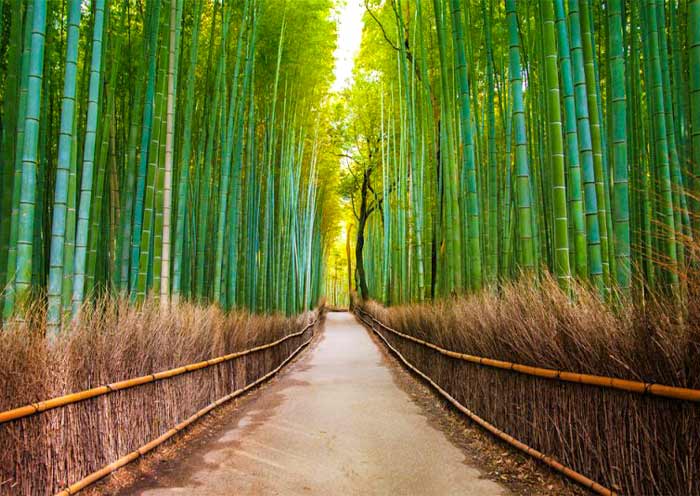
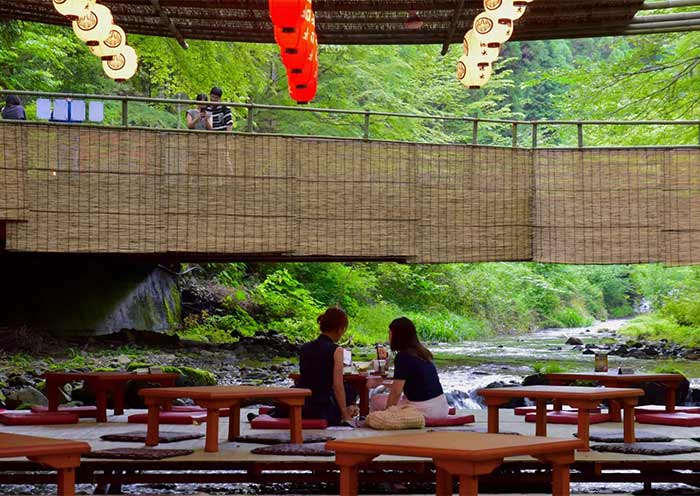
Spring (March to May): It is warm and pleasant. About 70% of first-time visitors choose spring, and for good reason. This is when the beautiful cherry blossoms bloom. Temperatures are mild, making it a great time to be outside. Expect crowds everywhere and hotel prices that can triple.
Summer (June to August): It is very hot and humid. The city gets a lot of rain, especially in June and July. Because Kyoto is in a basin, it can feel even hotter. Plus, July's Gion Matsuri transforms the city into a living museum of Japanese culture. August has the cheapest hotel rates all year.
Autumn (September to December): It is cool and comfortable. The weather becomes drier. Kyoto's maple trees create a fire-colored canvas across the city's 2,000 temples and shrines. The weather is comfortable for all-day exploration. Check More Japan Autumn Tour Packages to Catch Most of Fall Colors in Japan >>
Winter (December to February): It can be very cold. The average temperature is around 5°C (41°F). It doesn't snow very often, but the air can be dry. Tourist numbers drop by 60%, yet the temples remain just as beautiful. Experience Kyoto as locals know it.
Best Time to Visit Kyoto: The 30-Second Decision Guide
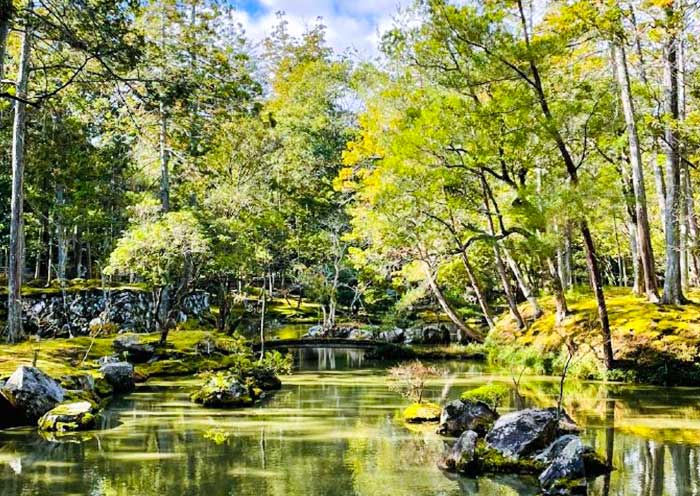
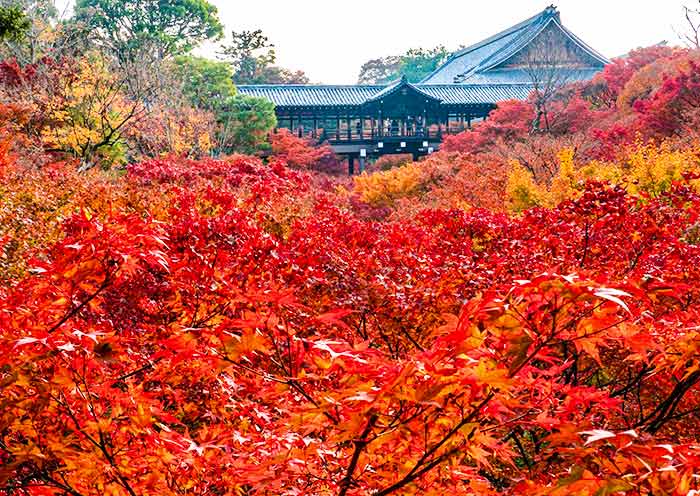
- Best for cherry blossoms: Late March - Early April
- Best for autumn leaves: Mid-November - Early December
- Best for fewer crowds: January-February, June, September
- Family-Friendly Timing: Early May (after Golden Week), Late October
- Budget Traveler's: Late January through February, Late August, Early December
- Photography Enthusiast: March 28 - April 10, November 20 - December 5, January-February
- Cultural Immersion: May 15 (Aoi Matsuri), July (Gion Matsuri), October 22 (Jidai Matsuri), December 31 (New Year's Eve temple bells)
Kyoto in Spring (March-May) - Cherry Blossom Season Mastery
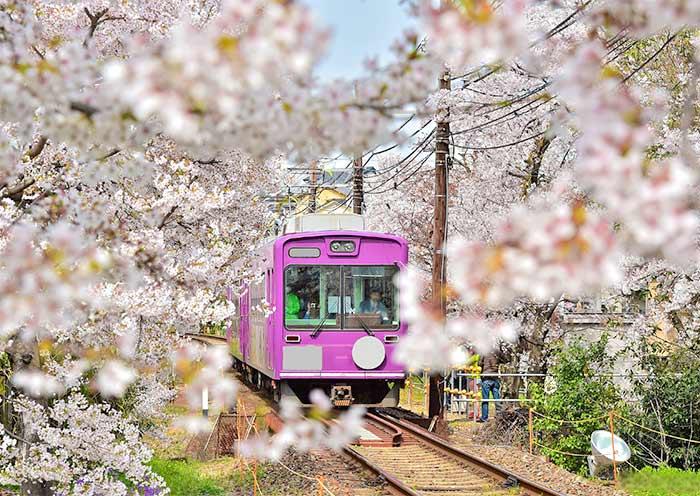
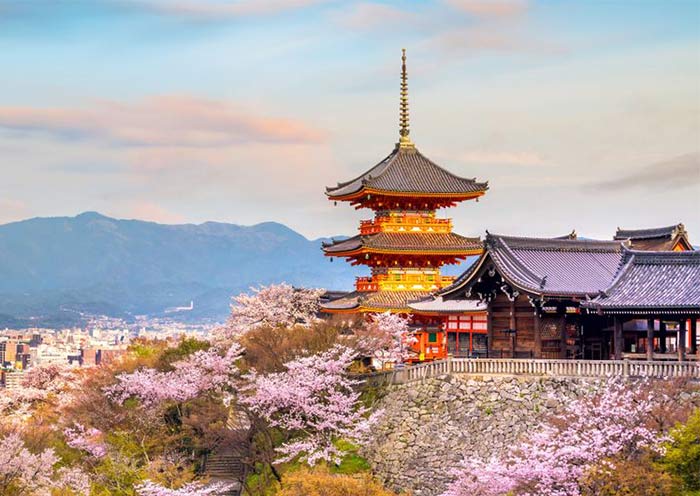
Spring in Kyoto is a beautiful time of year. The weather is mild and pleasant.
| Month | Average High (°C) | Average Low (°C) | Average Rainfall (mm) | Average Rainy Days |
|---|---|---|---|---|
| March | 13°C | 4°C | ~110 mm | 11 days |
| April | 20°C | 10°C | ~130 mm | 10 days |
| May | 25°C | 15°C | ~160 mm | 11 days |
Best Time to Go to Kyoto for Cherry Blossoms: End March-April
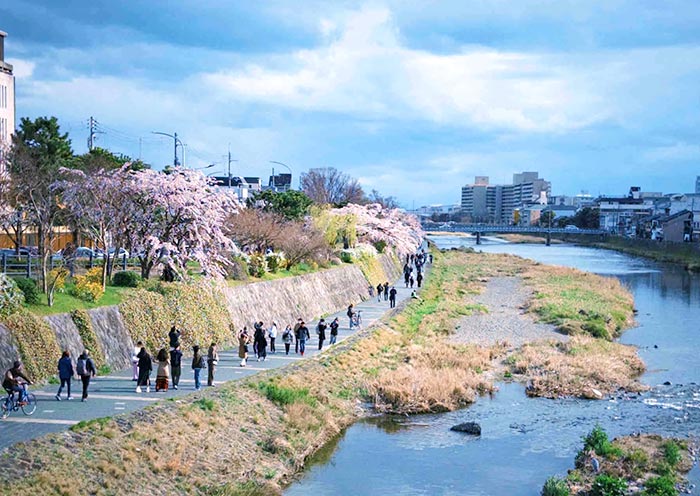
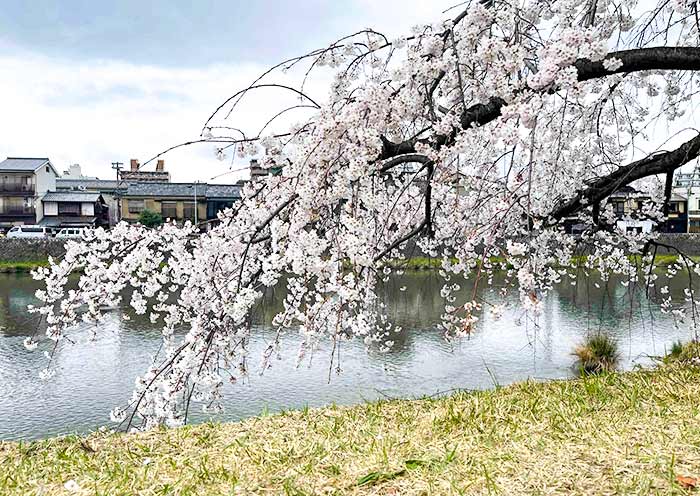
Cherry blossoms don't bloom uniformly across Kyoto. Northern temples at higher elevations bloom 3-5 days later than central city locations. Smart travelers use this to their advantage, following the bloom from south to north, effectively extending their viewing window.
Here is some data on the 2025 cherry blossoms for your reference. We will update this data before the 2026 cherry blossom season.
Alternatively, you can contact us, and our colleagues at the Asia Odyssey Travel office in Tokyo (株式会社Asia Odyssey Travel Japan) will be happy to help you plan your cherry blossom trip and provide real-time forecasts. This will ensure you don't miss the blooming of the pink cherry blossoms in 2026.
- First Blooms: March 28 (early varieties at select temples like Daigo-ji Temple and along the Kamogawa River)
- Full Bloom Start: April 5 (when trees reach 80% flowering)
- Peak Viewing Window: April 5-12 (perfect photography conditions)
- Late Blooming Varieties: April 15-25 (Omuro-zakura at Ninna-ji Temple)
Top Places to See Cherry Blossom in Kyoto
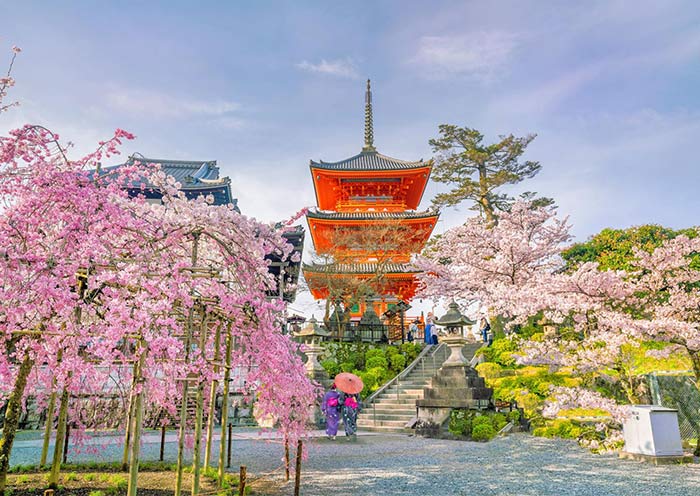
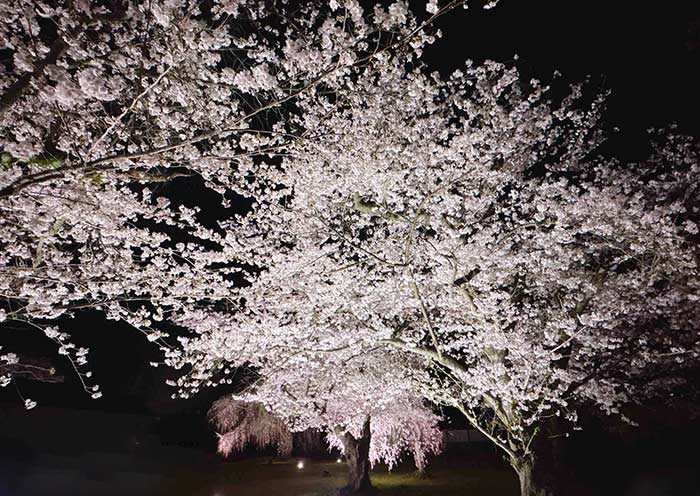
Maruyama Park becomes party central, with thousands gathering for hanami (flower viewing) parties that extend late into the night.
For a more serene experience, walk the Philosopher's Path early in the morning. This 2-kilometer stone path follows a canal lined with hundreds of cherry trees.
Daigo-ji Temple, a UNESCO World Heritage site, offers perhaps the most spectacular display with over 700 cherry trees.
While everyone fights for space at famous spots, neighborhood shrines offer equally beautiful blossoms without crowds. Try Hirano Shrine in northwestern Kyoto, home to 60 different cherry tree varieties that bloom at different times, extending the viewing season.
Kyoto Cherry Blossoms: 2026 Dates, 11 Best Spots & Festivals
No Sakura? A Month-by-Month Guide to Kyoto in Spring
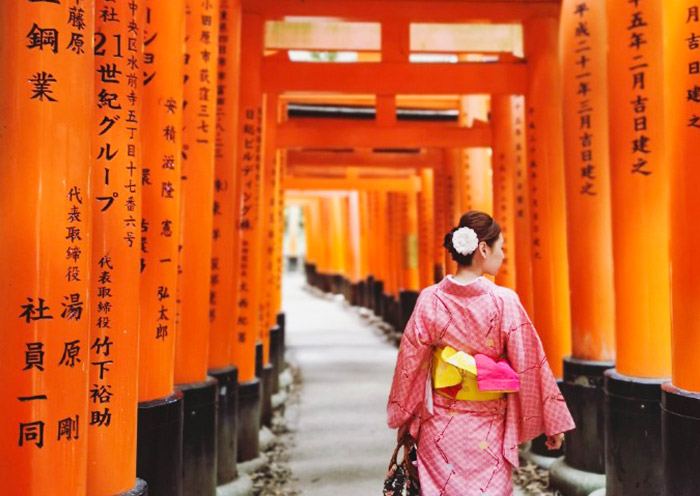
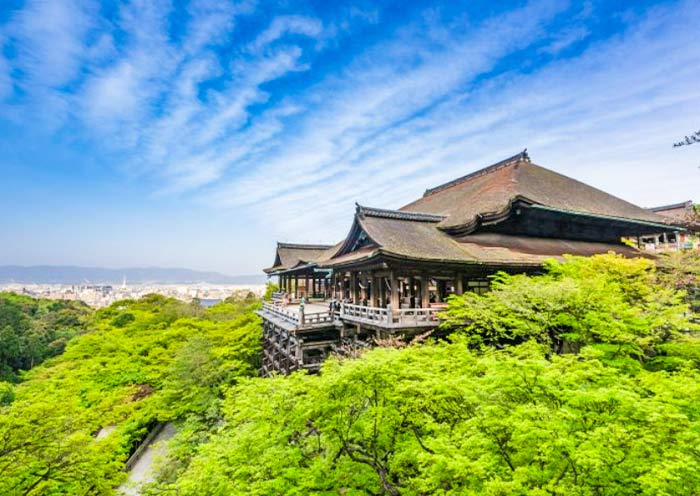
March brings mild weather (6–16°C) and low crowds, with hotel prices around 60% cheaper than April. Plum blossoms bloom at Kitano Tenmangu Shrine all month, with a festival featuring tea served by geiko extending from late February into early March.
Arriving in late March lets you catch the start of cherry blossom season without peak prices.
April offers perfect spring weather (10–20°C) and full cherry blossom bloom, but crowd levels are at their highest—especially during the first two weeks.
May is warm and comfortable (15–24°C), with fewer tourists after Golden Week. Wisteria at Byodo-in in Uji and azaleas at Nagaoka Tenmangu compete with sakura for beauty. The Aoi Matsuri on May 15 features a graceful Heian-era parade, offering a refined festival atmosphere.
Kyoto Temples & Shrines: 10 Famous Temples & Shrines in Kyoto (2026)
Kyoto in Fall (Sept - Nov): Autumn Colors at Their Peak
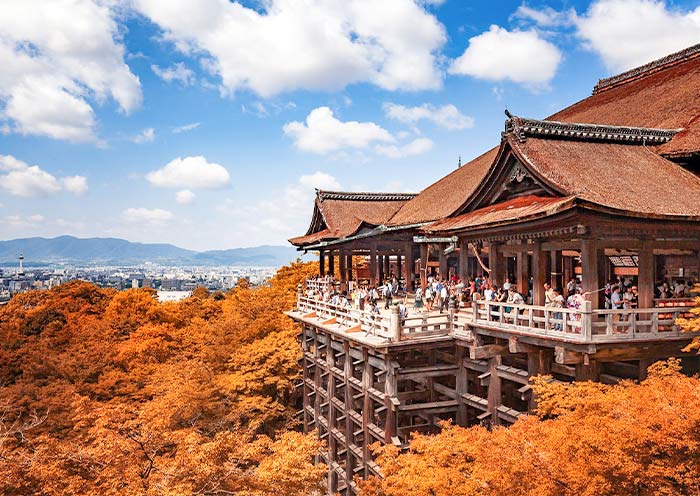
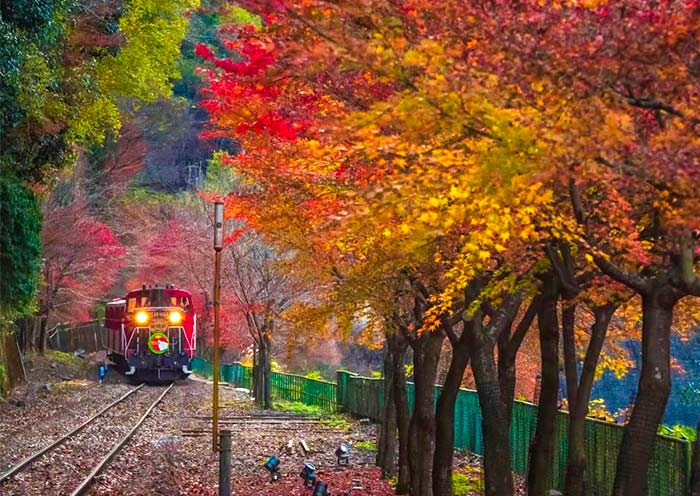
Fall in Kyoto is cool, dry, and beautiful. The season starts in September and ends in November. Fall is a great season to walk around temples, gardens, and mountains. You should wear light clothes in September and bring a jacket for October and November.
- September is still warm, with temperatures around 20–30°C (68–86°F). It can be rainy because of typhoons.
- In October, the weather becomes cooler and more comfortable. The sky is often clear, and the air feels fresh. Temperatures are around 14–24°C (57–75°F).
- November is cooler, with temperatures between 8–18°C (46–64°F). The leaves on the trees turn red, orange, and yellow. Many people visit Kyoto to see the fall colors.
Best Time to See Kyoto's Autumn Colors: From Oct to December
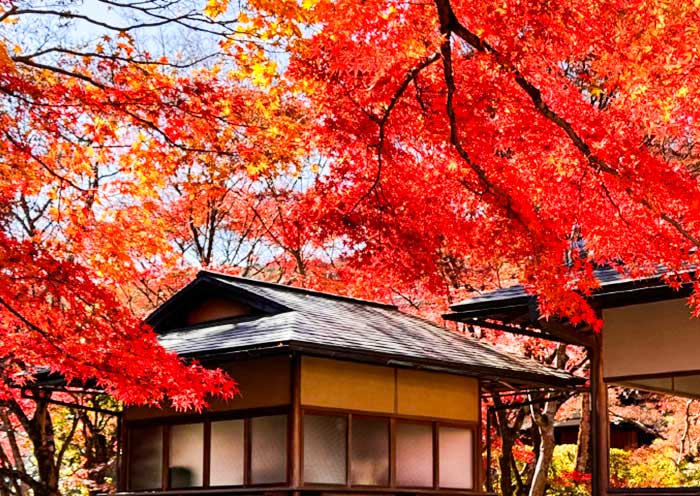
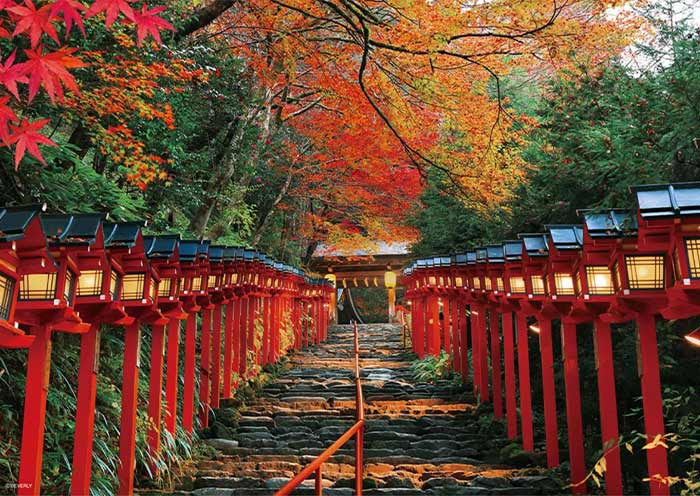
The autumn color change, called koyo, typically begins in end October and peaks around November 15-25, though elevation and species create varied timing across the city.
Unlike cherry blossoms' brief two-week show, fall colors linger for nearly a month, giving you more flexibility in planning.
The 2025 autumn forecast reflects continuing climate trends that are pushing peak colors later into the season:
- Early Color in Mountains: October 25 (Kurama, Takao)
- City Temples First Color: November 10
- Peak City Colors: November 20-30
- Extended Late Season: December 1-10
Temperature plays the crucial role in autumn colors. Kyoto needs warm days and cool nights—ideally 20°C days and 10°C nights—to trigger the chemical changes that create vibrant leaves. One early cold snap can accelerate the entire season by a week. Check More Japan Autumn Tour Packages to Catch Most of Fall Colors in Japan >>
Top Places to Visit Kyoto Fall Foliage
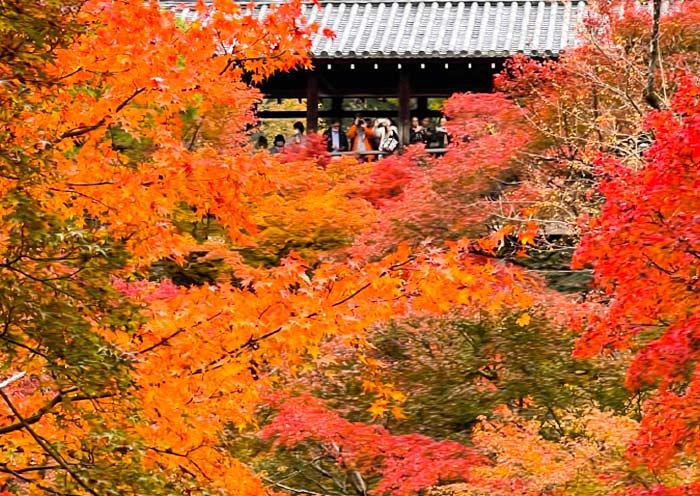
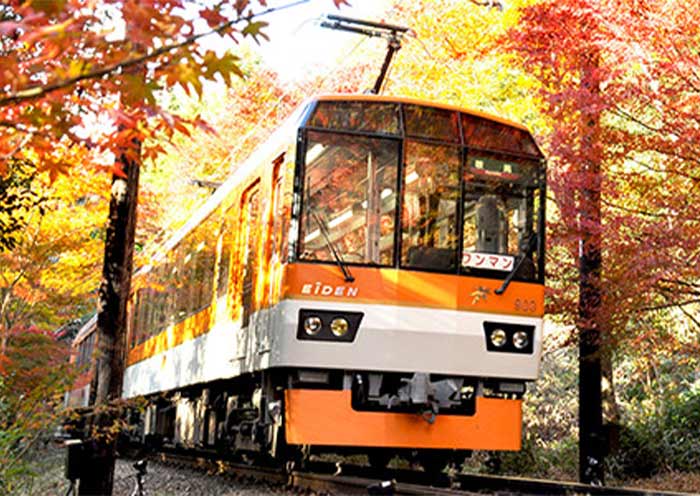
One of the top places is Tofuku-ji Temple. It has a big garden and a bridge with a great view of red maple trees. Evening illuminations add another dimension to fall visits. Temples like Eikando and Kodai-ji stay open until 9 PM during peak season.
Arashiyama is a popular area with many trees and a river. You can walk through the forest or ride a boat. Kiyomizu-dera Temple is on a hill. From the top, you can see the whole city with fall colors. Nanzen-ji Temple and the Philosopher's Path are peaceful places with many trees.
For a completely different experience, take the train to Kurama and hike to Kibune. This mountain trail passes through forests that turn into a tunnel of gold and red in November. The outdoor onsen at the end rewards your effort. Find Your Perfect Onsen >>
The momiji tempura (fried maple leaves) sold in Kibune is a unique autumn treat you won't find in central Kyoto.
Kyoto Autumn Foliage: Visiting Time, Spots & Itinerary (2026 Guide)
What to Expect in Kyoto in Autumn?
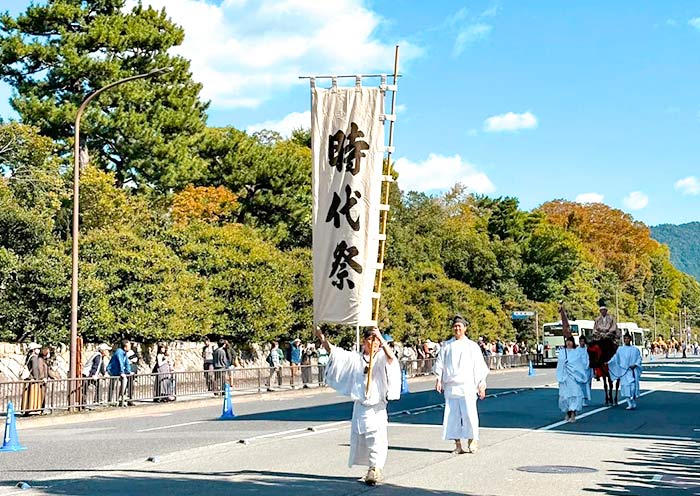
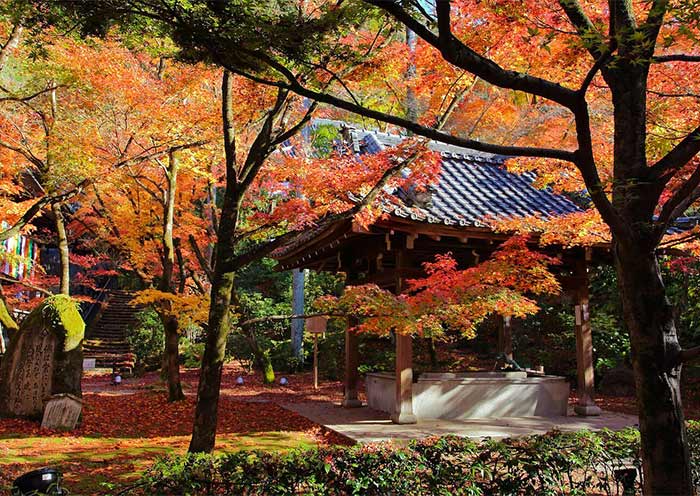
September flies under most tourists' radar, making it perfect for strategic travelers. It's also ideal weather for hiking Kyoto's surrounding mountains, like the trail from Kurama to Kibune. Many temples stay open later for special exhibitions. Hike to Breathtaking Vistas of Japan >>
October marks Kyoto's transition into autumn mode. Temperatures settle into a perfect 15-22°C (59-72°F) range. The Jidai Matsuri on October 22 showcases 2,000 years of Kyoto history through costumes and pageantry. The parade runs from the Imperial Palace to Heian Shrine, taking about five hours.
Mountain temples show colors first. Take the Eizan Electric Railway to Kurama-dera temple to see early colors while city maples remain green.
November is Kyoto's fire season—not literally, but the maples burn so bright it seems possible. Temperatures cool to 8-17°C (46-63°F), perfect for walking all day with a light jacket.
While everyone rushes to eastern Kyoto's famous temples, western areas like Arashiyama and northern spots like Ohara remain manageable until late morning.
Top 10 Things to Do in Kyoto | Kyoto Destinations & Must-See (for First Timers)
Kyoto Winter - Cold But Not Brutal
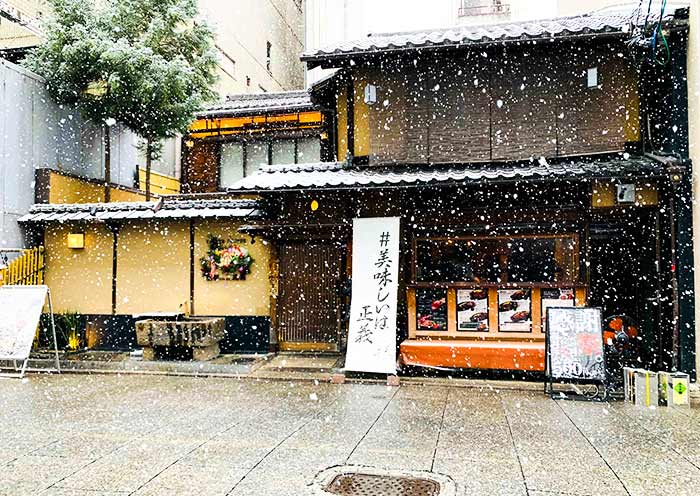
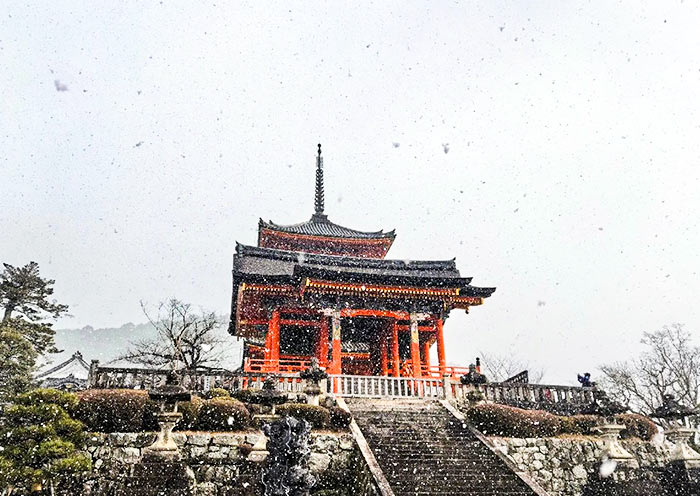
Winter is Kyoto's most peaceful season. With fewer tourists, the city feels more authentic, intimate, and affordable. Temperatures range from 0–12°C (32–54°F). It's cold but not brutal, so layering is more helpful than thick coats.
Although Kyoto itself lacks natural hot springs, nearby Kurama Onsen (40 minutes away) offers open-air baths with mountain views. Sitting in warm water while snow falls is a magical winter moment. Find Your Perfect Onsen >>
Why You Should Visit Kyoto in Winter?
- Low hotel prices: Luxury rooms drop from $400 to $80–100
- Fewer crowds: Easier access to temples, gardens, and experiences
- Snow magic: Light snowfall transforms temples into "yukimi" (snow-viewing) scenes
Month-by-Month Highlights
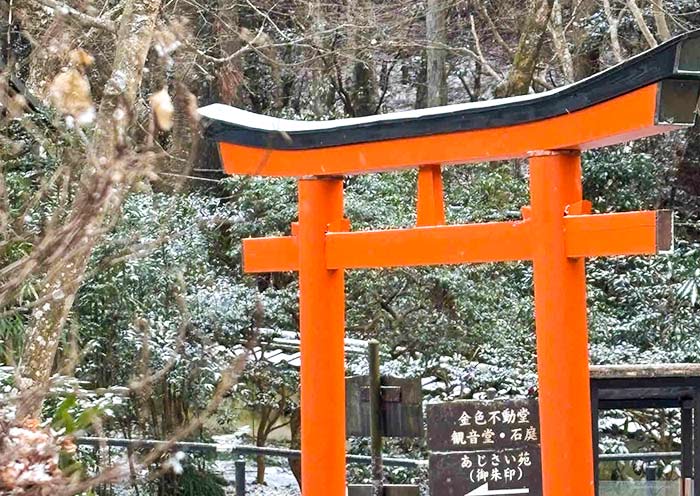
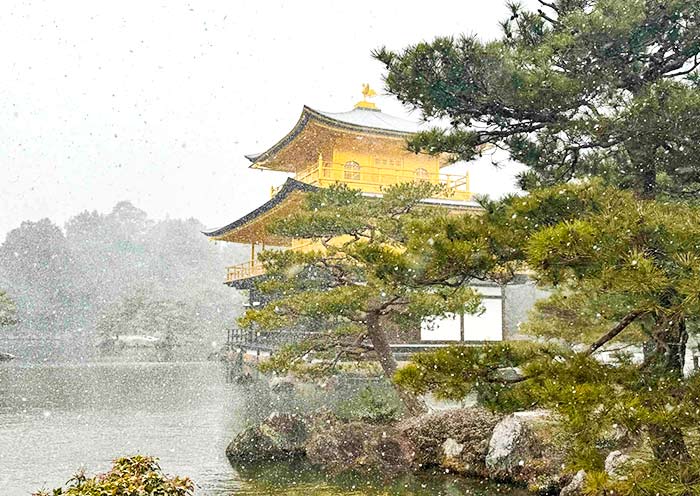
December starts with late autumn colors and mild cold around 3–12°C. Hotel prices drop by half, making luxury stays surprisingly affordable. Check More Japan Autumn Tour Packages to Catch Most of Fall Colors in Japan >>
January begins with New Year shrine visits, especially at Fushimi Inari, which is very crowded in the first few days. After January 3, the city calms down, with light snow transforming temples into serene, ink-painting-like scenes.
February stays cold, but plum blossoms begin blooming at Kitano Tenmangu Shrine, where a plum festival on February 25 with tea ceremonies brings quiet beauty to the end of winter.
Visiting Japan in Winter 2026: Snowy North or Sunny South?
Kyoto Summer (June-August): Hot but Best Seasons for Festivals
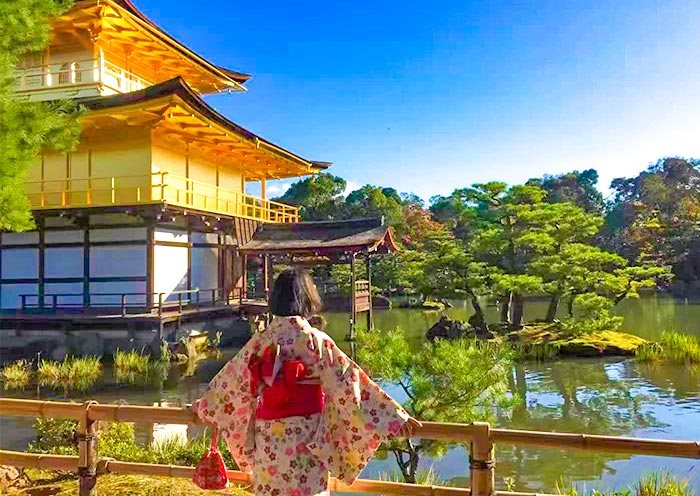
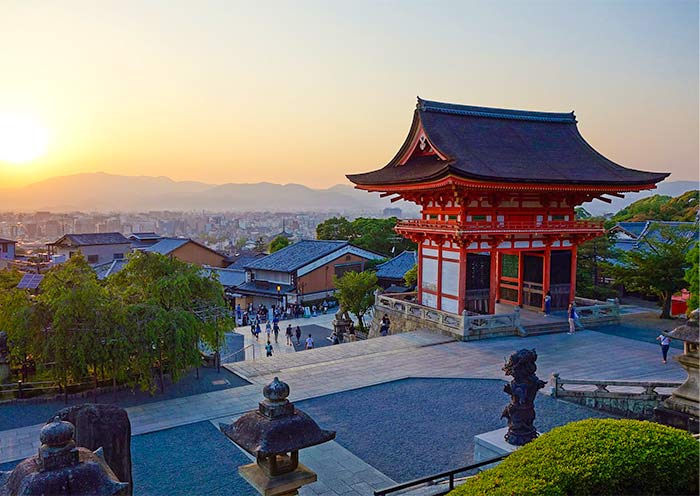
Summer in Kyoto gets a bad reputation, and partially deserved—it's hot, humid, and can be uncomfortable. From June through August, temperatures regularly hit 85-90°F with humidity levels that make it feel like you're walking through soup.
The rainy season (tsuyu) runs from early June to mid-July, bringing daily afternoon downpours that can derail outdoor plans.
But summer also pulses with cultural energy impossible to find in other seasons, and smart travelers can find surprising value.
June - Rainy Season Reality
June brings tsuyu, the rainy season, with average rainfall of 200mm. Temperatures range from 20-28°C (68-82°F). Rain doesn't fall constantly—expect 15 rainy days with periods of drizzle rather than downpours.
Hydrangeas bloom throughout June, turning temples like Sanzen-in into purple and blue wonderlands. These flowers love rain and look their best in conditions that keep fair-weather tourists away.
Japan's Rainy Season 2026: How to Love Plum Rain Season (Tsuyu)
July - Gion Matsuri Spectacular
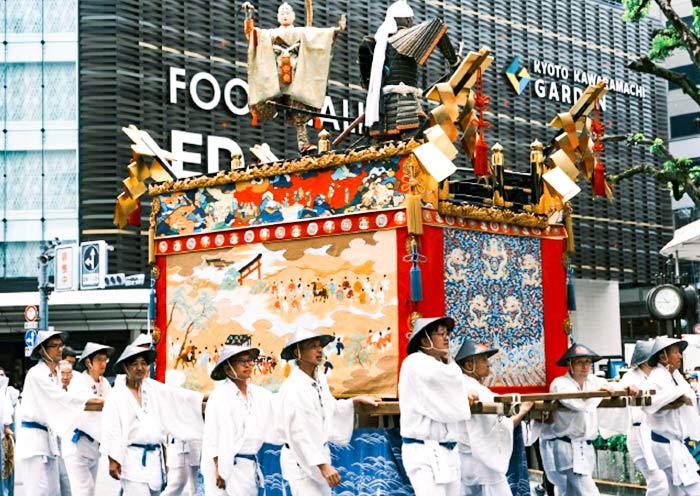
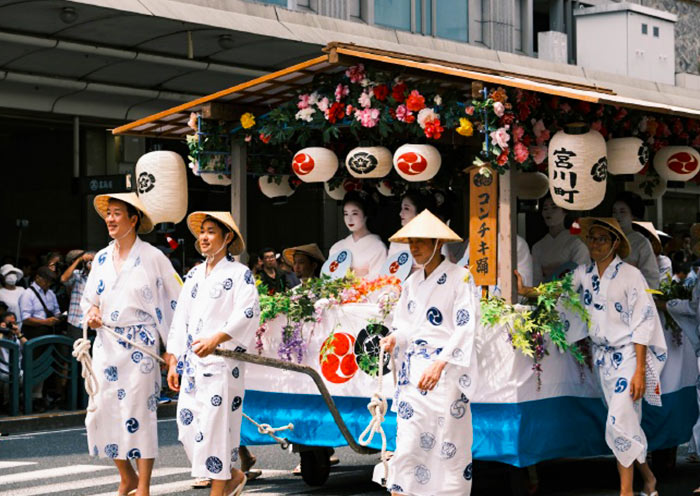
July is Gion Matsuri month, and Kyoto transforms. Temperatures climb to 25-32°C (77-90°F) with humidity making it feel hotter.
Gion Matsuri isn't one event but a month-long celebration culminating in grand parades on July 17 and 24. The yamaboko floats, some weighing 12 tons and standing 25 meters tall, are pulled through streets by teams of men using only ropes. It's been happening since 869 AD.
The three nights before each parade (yoiyama) are the festival's heart. Streets close to traffic, vendors sell everything imaginable, and people wear yukata (summer kimono). The atmosphere is electric—imagine Mardi Gras meets ancient Japan.
August - Budget Friendly & Obon Festival
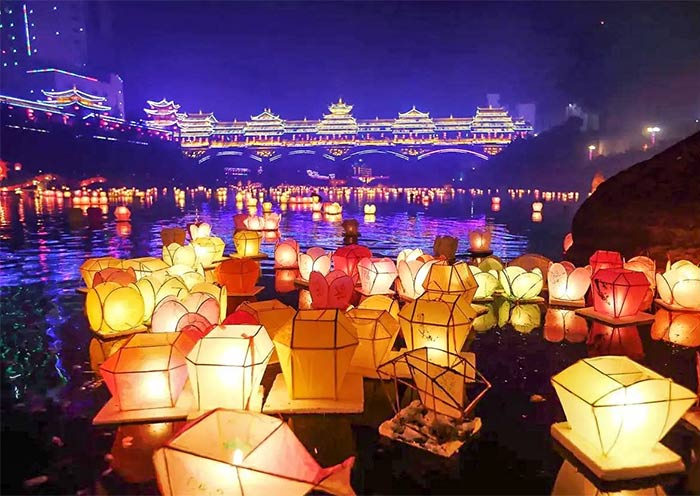
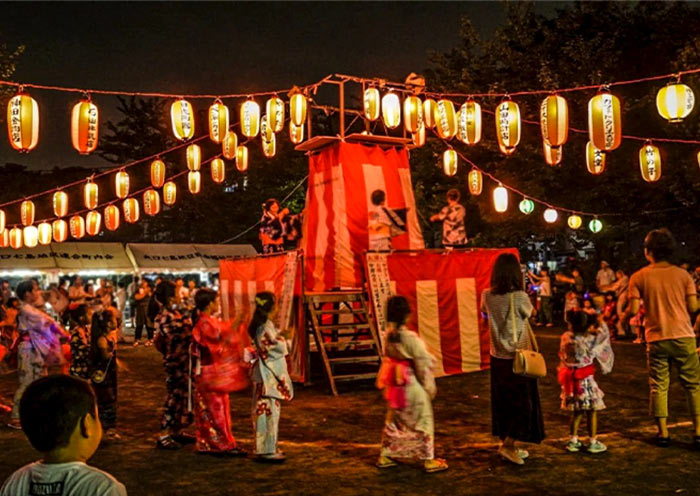
August should be Kyoto's worst month—temperatures hit 26-34°C (79-93°F), humidity reaches 82%. Yet August offers incredible value for travelers who adapt.
Hotels cost less in August than any other month. Japanese travel domestically in August for Obon (August 13-16), but international tourism drops. Night events make August special. Many temples offer evening hours with special illuminations.
Japan in Summer: Weather, 8+ Cool Escapes & Festivals (2026)
Is Golden Week the Worst Time to Visit Kyoto? Yes, Avoid at All Costs
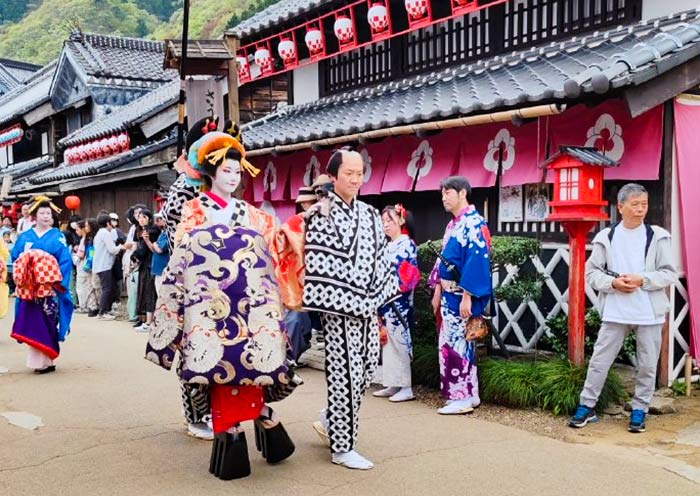
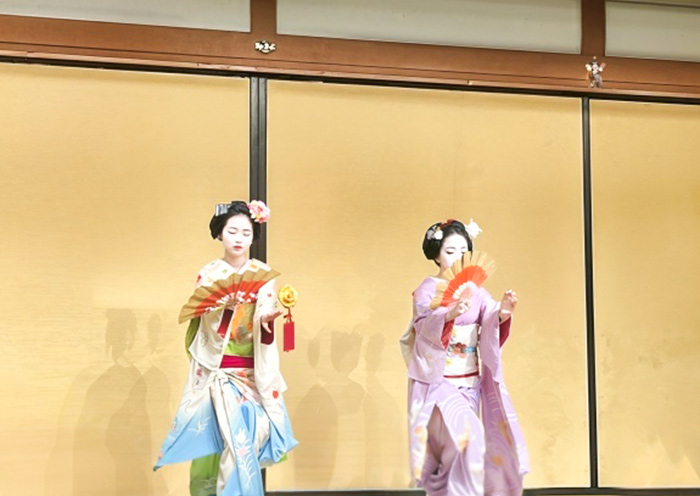
Let's be honest about when Kyoto becomes more frustrating than fun.
Golden Week (April 29 - May 5) combines multiple Japanese holidays into the country's longest vacation period. Every Japanese person who can travel does, and many choose Kyoto. It's domestic tourism on steroids.
Peak Cherry Blossom Weekend (First April Weekend): The first weekend of April typically coincides with peak bloom. Maximum international tourists, domestic weekend travelers, and ideal weather bringing out locals.
August 10-20: Mid-August combines peak summer heat with Obon holiday crowds. Obon adds domestic tourists to the mix, though not as severely as Golden Week. The combination of heat exhaustion and crowds can ruin trips.
June 15-July 10: Late June through early July brings the most intense rain. Humidity hits 90%, making even covered areas uncomfortable.
Discover Kyoto & Japan with Your Local Guide - Asia Odyssey Travel
Explore Japan with Asia Odyssey Travel! We are a local travel company with an office in Tokyo. We are here to help you enjoy the best of Japan. We offer simple, fun, and real local tours.
Our Japan Tours at a Glance:
✅ Japan Tours: 60+ Best Tour Packages
✅ Japan Group Tours: 6+ great value trips, including cherry blossoms & classical routes.
✅ Kyoto Tours: Explore ancient temples, Gion's geishas, and serene bamboo groves.
Helpful Guides for Your Japan Trip:
Japan Travel Guide & Travel FAQs: All you need to know before you go.
Useful Advice: How to Plan · Best Time to Visit · Cherry Blossom · Things to Do · Beautiful Places · Temples · Food · Maps · Rainy Season
Contact us now and start planning your dream Japan tour.
